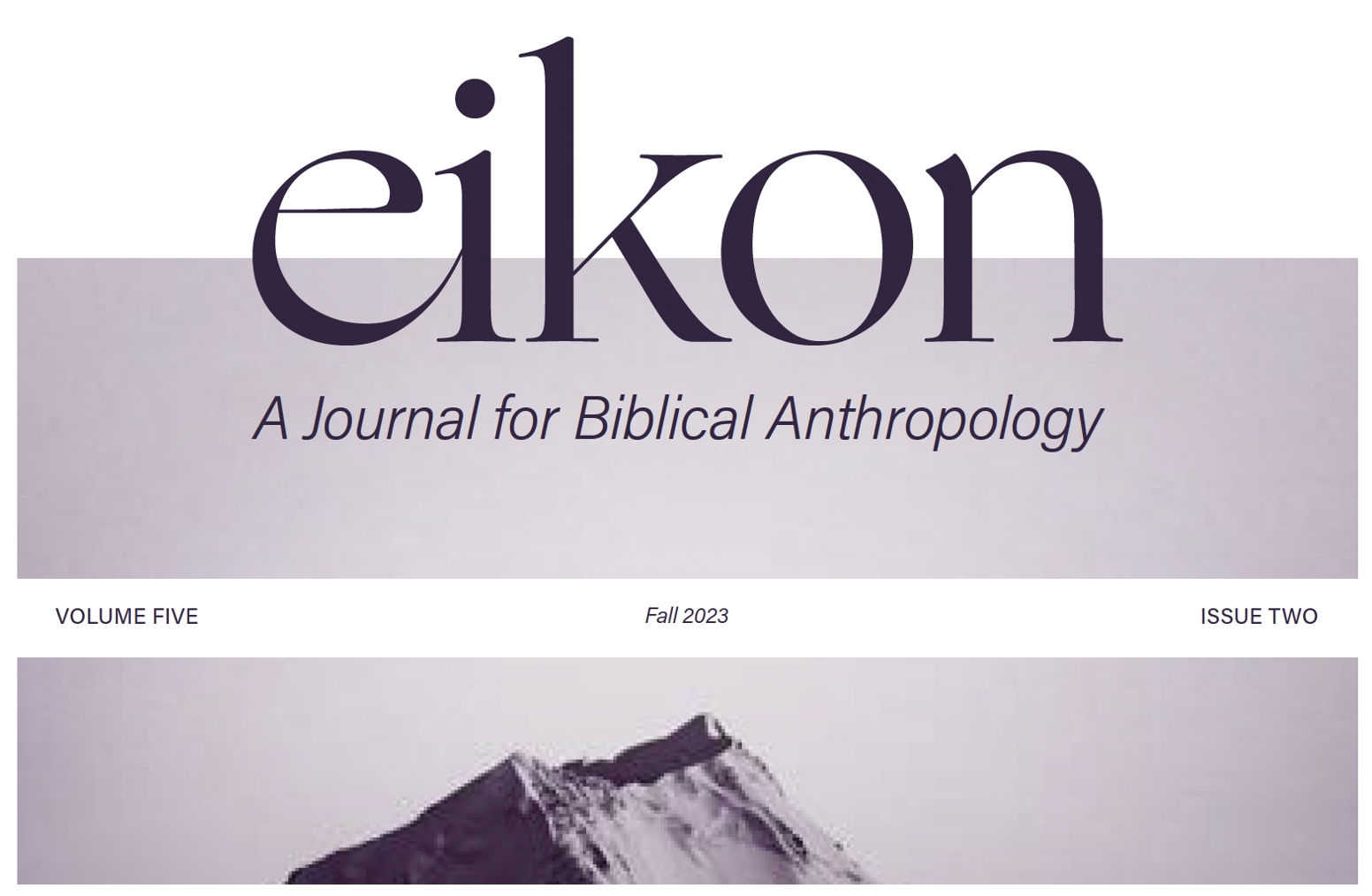
Editor’s note: The following essay appears in the Fall 2023 issue of Eikon.
Editorial
The Apostle Paul teaches in Ephesians 3:15 that from God the Father is named “every family in heaven and on earth.” Notably, the ESV includes a translation note that reveals an etymological connection between “Father” (πατήρ) and “family” (πατριά): literally, it is all fatherhood in heaven and on earth that is named from God the Father. An entire response to feminism’s revolt against God’s creation design is housed en miniature in this word and its translation. How can a word that literally means “fatherhood” be faithfully translated “family”? Could it have something to do with the God-ordained principle of male headship? Paul certainly seems to teach accordingly later on in the same letter in Ephesians 5.
But this is not the approach I aim to take on Ephesians 3:15 in this editorial, which is written in service of introducing you to the Fall 2023 issue of Eikon, Volume 5, Issue 2. The theme of this issue is fatherhood and masculinity. Both are under siege in the West — and not for unrelated reasons. As Nancy Pearcey points out in her new book, The Toxic War on Masculinity, which Steven Wedgeworth ably and thoroughly reviews in these pages, there is something toxic in the air. But contrary to what our effeminate and emasculated culture-makers would have you believe, it is not masculinity. What is toxic is the feminist war on masculinity being waged under the false pretense that masculinity is the problem.
Arch-feminist Mary Daly once quipped, “If God is male, then male is God.” The obvious entailments write themselves. If God is male, and male is God, where does that leave women? Either worshiping men as God, or rejecting both altogether. Notice how this seems to mirror the news cycle today. But confessional Christians everywhere reject Daly’s premise.
God is not male, because he does not have a body. God is Spirit (John 4:24). But as Kyle Claunch deftly demonstrates in his must-read treatise in this issue, God is Father, Son, and Holy Spirit, and fatherhood is an essential attribute of God. God is not male, but his self-revelation is masculine. Which brings us back to Ephesians 3:15.
To appropriate Daly, if God is Father, and if all fatherhood and every family is named from him (Eph. 3:15), and if progressivism’s stated goals involve “disrupting” both (as a 2020 Black Lives Matter campaign reminded the world), where does that leave God? Naturally, he must be “disrupted” too. If fatherhood is named from God the Father, then in order to take on the branch, as it were, you cannot ignore the root. The only question that remains is, what came first? The rampant, feminist-fueled hatred for fatherhood and masculinity, or hatred for God? Romans 1 leads us to conclude that those who hate manhood — a hatred that cannot be cordoned off from a hatred of womanhood, as LGBT activists have thoroughly established through their faux-trans-masquerades — have a prior hatred toward God.
The attempt to “disrupt” God has taken on many forms. Some — even some self-professing evangelicals — have rejected God’s masculine self-revelation, opting for gender-neutral pronouns to refer to God, or worse, assigning God names like Mother that he never takes to himself (see the Spring 2023 issue of Eikon for our head-on engagement with this error). Let it be clear: we do not name God. He names himself, and he has named himself Father.
But it is not enough to insist on confessing the fatherhood of God. We know God through his creation and word, and those who are at war with the natural family and fatherhood are at war with God’s revelation — both books, Nature and Scripture. But we believe fatherhood and masculinity are not only good, they are true and beautiful, which is why you will not find us apologizing for them in this issue. Instead, we promote fatherhood and masculinity, because when we promote these we promote human flourishing in their complements: motherhood and femininity.
As Calvin says in the opening sentence of his Institutes, “Our wisdom, insofar as it ought to be deemed true and solid Wisdom, consists almost entirely of two parts: the knowledge of God and of ourselves. But as these are connected together by many ties, it is not easy to determine which of the two precedes and gives birth to the other.” This is how we ought to engage what Pearcey has called The Toxic War on Masculinity. It is an assault on what God has created, which makes it an assault on God himself. In the pages that follow, join Kevin DeYoung, Alexander Strauch, Steven Wedgeworth, Calvin Robinson, and a host of other writers who take up the Sword of the Spirit (Eph. 6:17) for both defense and offense in the all out cosmic war “against the rulers, against the authorities, against the cosmic powers over this present darkness, against the spiritual forces of evil in the heavenly places” (Eph. 6:12).
Colin J. Smothers
Executive Editor, Eikon
November 2023
You, too, can help support the ministry of CBMW. We are a non-profit organization that is fully-funded by individual gifts and ministry partnerships. Your contribution will go directly toward the production of more gospel-centered, church-equipping resources.